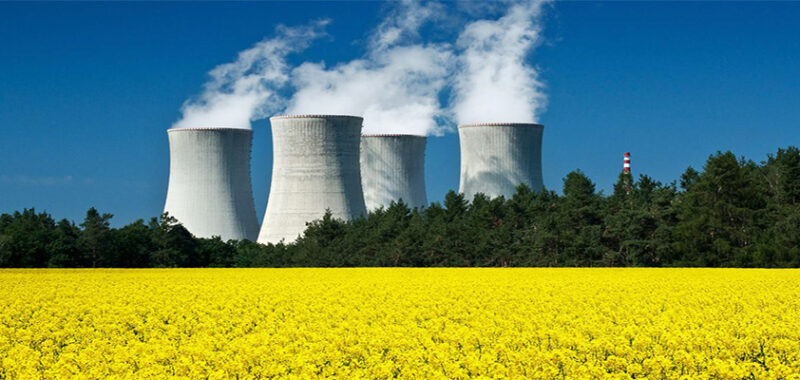More than a dozen of the largest banks in the world are pledging their support to nuclear power, supporting the goal of the COP28 summit to triple nuclear capacity by 2050, the Financial Times reports.
Goldman Sachs, Bank of America, Barclays, BNP Paribas, Citi, Morgan Stanley, Société Générale, Crédit Agricole CIB, Abu Dhabi Commercial Bank, Ares Management, Brookfield, Guggenheim Securities, Rothschild & Co, and Segra Capital Management are set to pledge at a New York event on Monday their support to boosting global nuclear power capacity and generation as a means to achieving net-zero.
At the COP28 climate summit in Dubai at the end of last year, the United States and 21 other countries pledged to triple nuclear energy capacity by 2050, saying incorporating more nuclear power in their energy mix is critical for achieving their net zero goals in the coming decades.
The United States, alongside Britain, France, Canada, Sweden, South Korea, Ghana, and the United Arab Emirates (UAE), among others, signed the declaration at the COP28 climate summit.
The world’s biggest banks are not expected to go into details about what they would do in regard to the pledge, but analysts tell FT that the mere fact that they are now publicly supporting nuclear energy would be an important recognition that nuclear will play a crucial role in the decarbonization of the global energy systems.
There is “no scenario” in which net zero could be reached by 2050 without nuclear energy, BNP told FT, quoting the UN’s Intergovernmental Panel on Climate Change. Barclays, for its part, told FT that it supports nuclear power as it could be the backup solution for intermittent solar and wind power generation.
Despite being an industry notoriously known for years of delays and huge cost overruns, a global nuclear power renaissance is underway.
The comeback of nuclear energy is expected to drive a record-high electricity generation from nuclear in 2025, the International Energy Agency (IEA) said early this year.
By Tsvetana Paraskova for Oilprice.com

